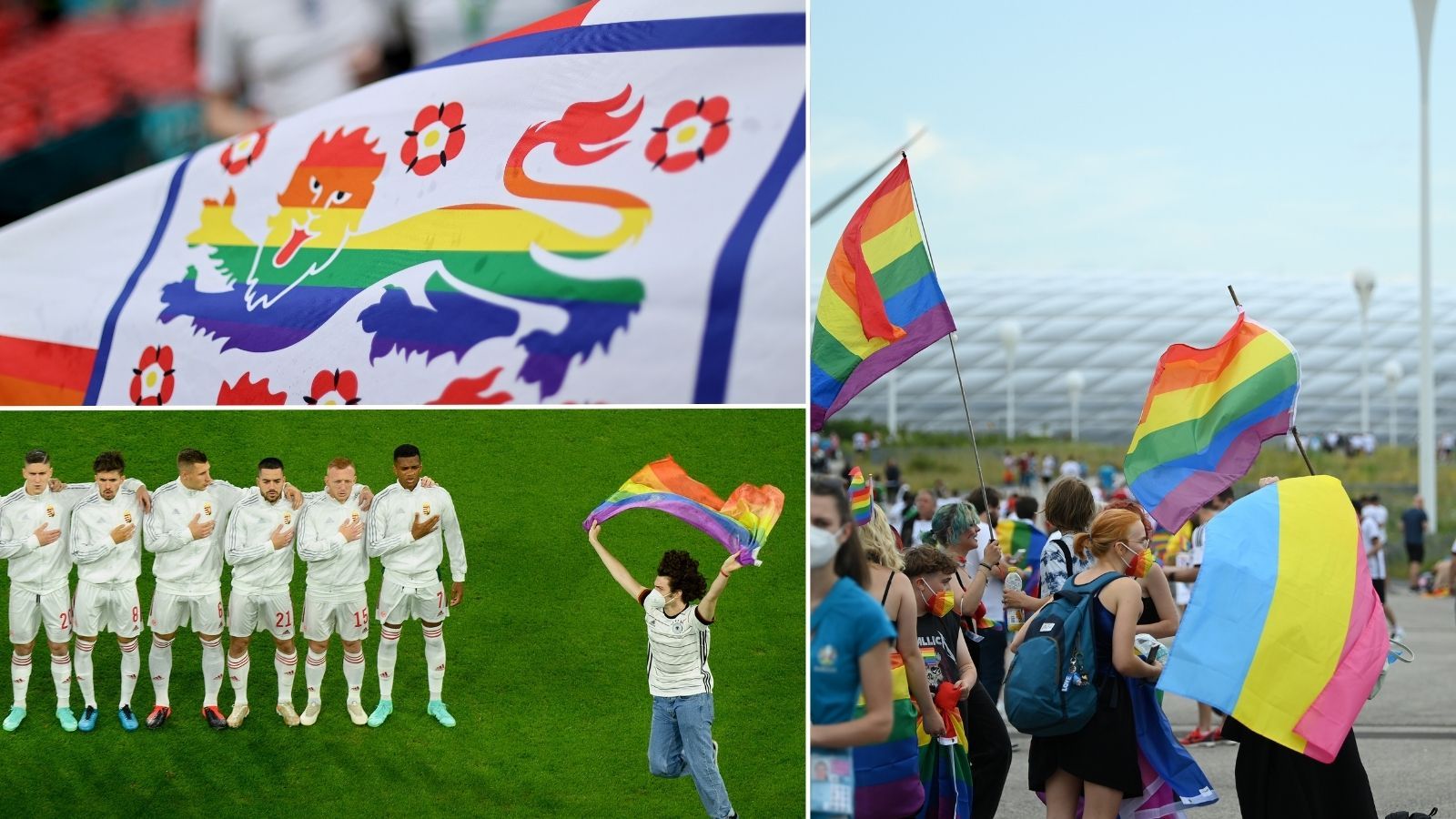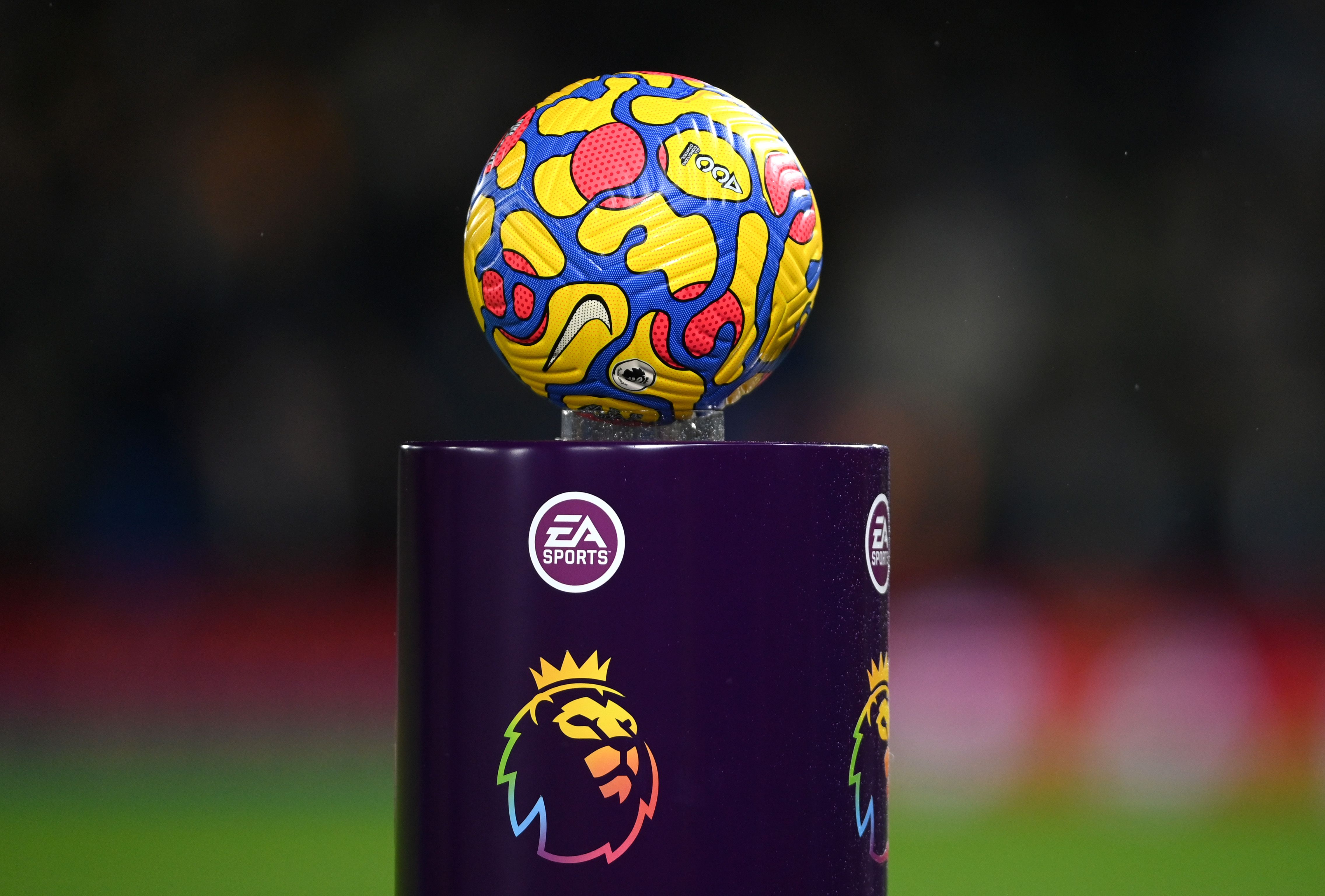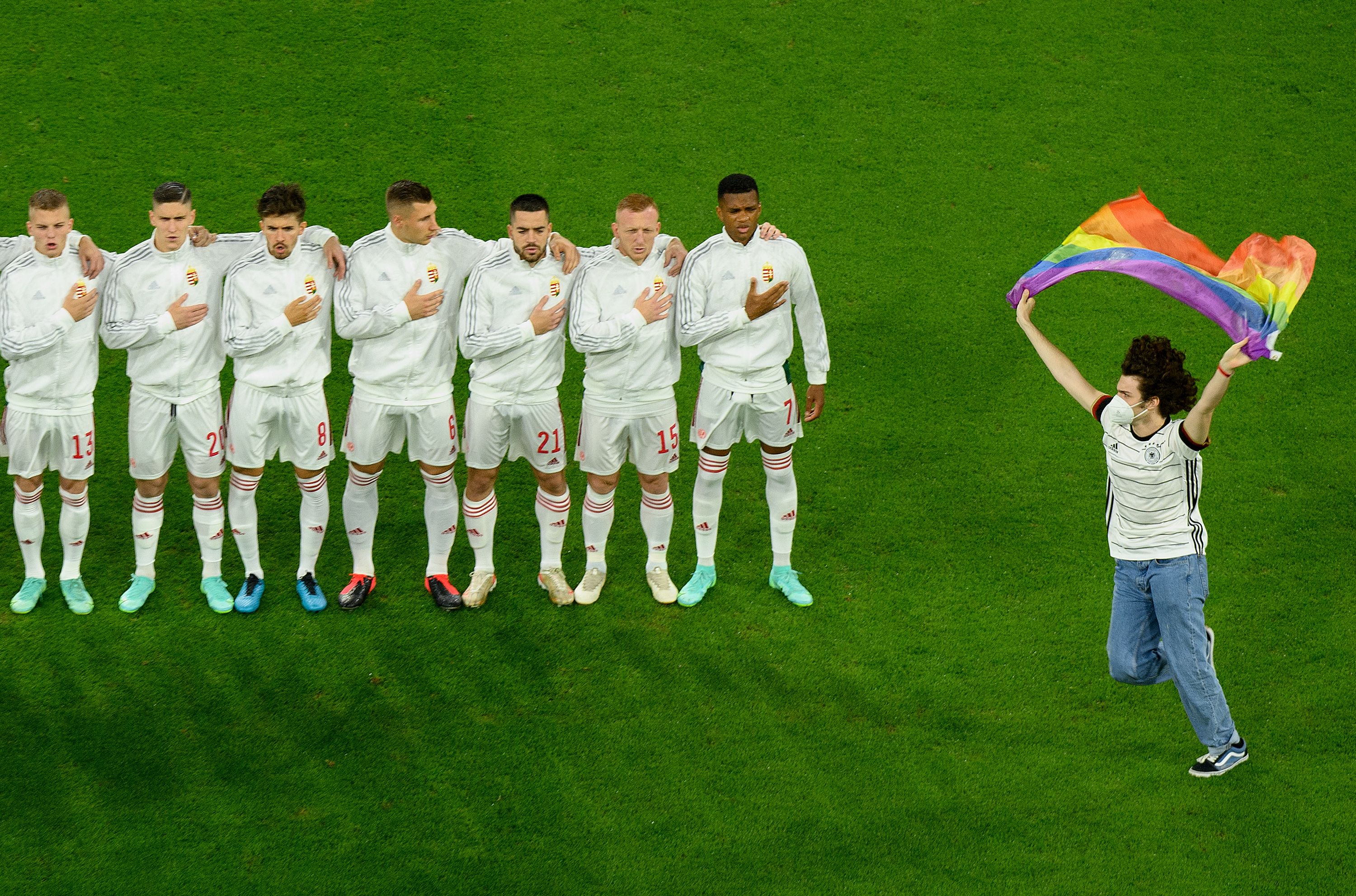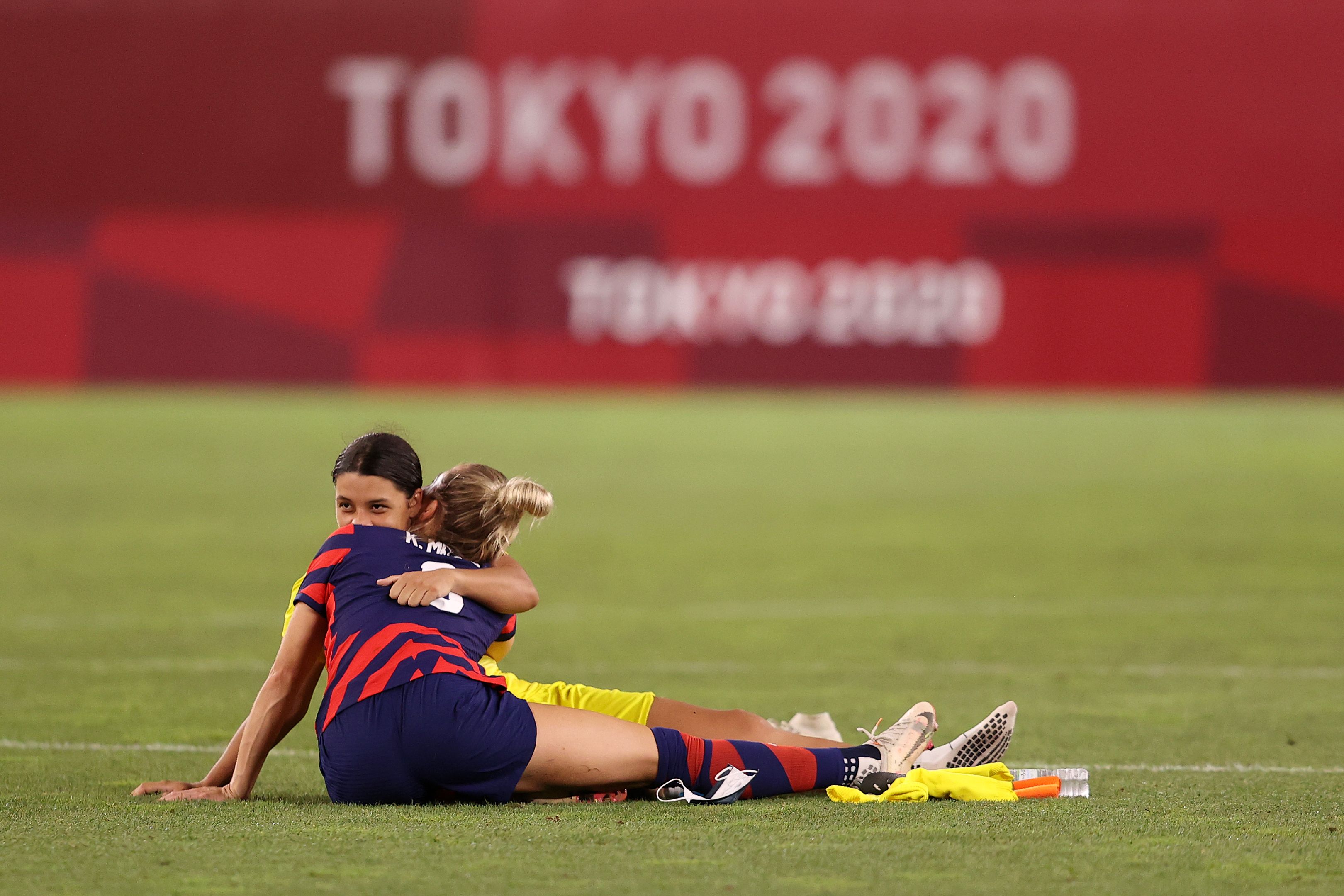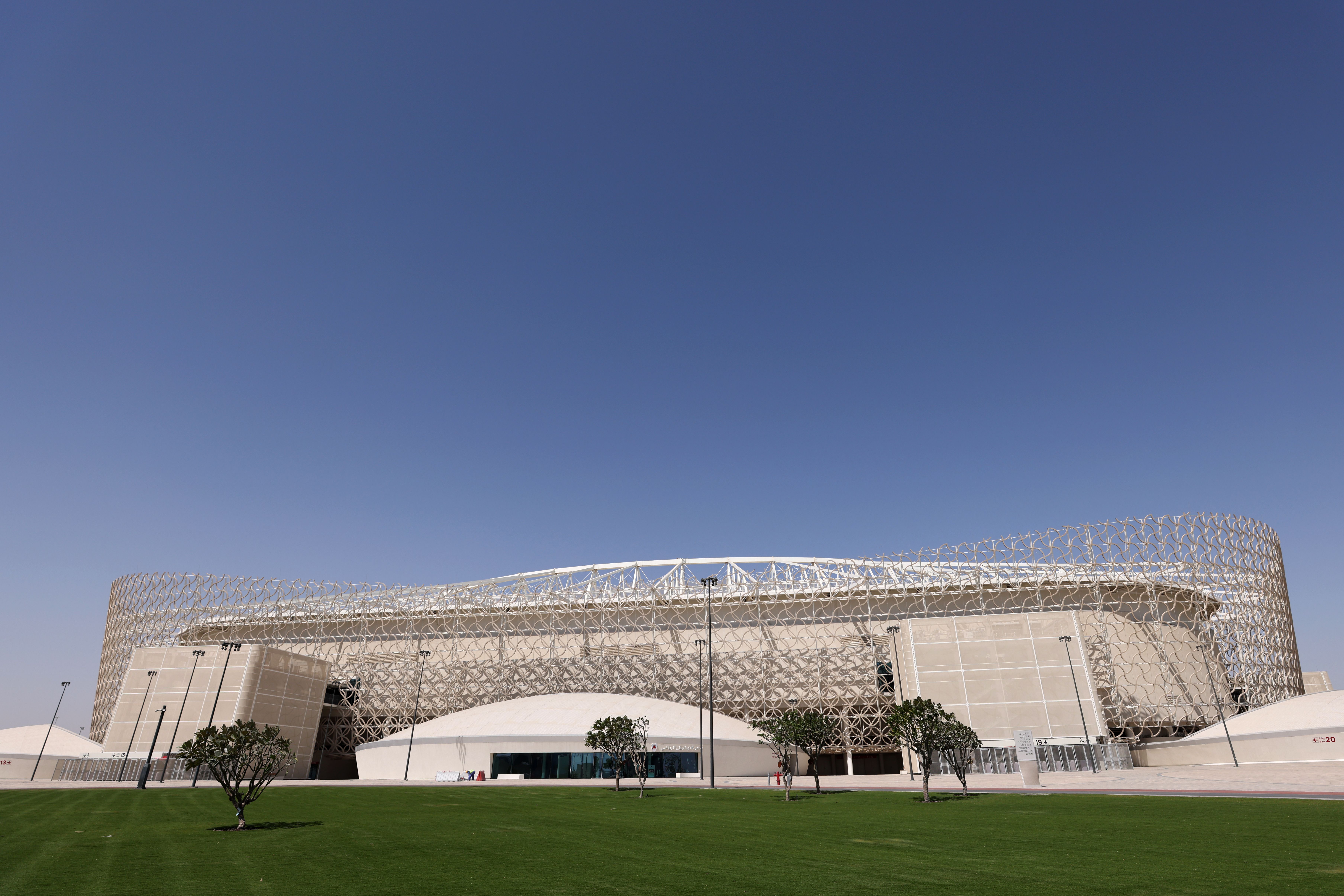International tournaments are a wonderful opportunity for people from all corners of the globe to come together with one shared passion: the beautiful game.In women's football, fans have created an almost family-like community, in which there is support in abundance. Particularly when it comes to promoting equality.Being part of the LGBTQ+ community is not just accepted, but celebrated. Women's football is a stage for breaking stigmas and encouraging people to be their true selves, with some of the game's biggest trailblazers out and proud.When Euro 2022 kicks off in England this summer, fans will flock to some of the world's most famous stadiums, including Old Trafford and Wembley.Tickets to the final have sold out and are very limited for other fixtures. This year's attendance numbers are expected to shatter the record from Euro 2017, giving LGBTQ+ visibility an unprecedented international platform.Unfortunately, the same cannot be said for the men's World Cup, which is scheduled to take place in Qatar this November.
The stark contrast
The difference in queer representation in the men's and women's game has always been worlds apart.
There is a large amount of publicly gay women's players who have become icons within the LGBTQ+ community. Many are looked up to for how effortlessly they are able to be themselves and how open they are about their relationships.
This is not just down to the players choosing to come out either. Without the support of their fans, the confidence to be out and proud would certainly be minimised.
But between the players and fans, a safe haven has been created in the women's football community where individuals feel comfortable being who they are.
In contrast, the only real moments of acceptance in the men's game are when the Rainbow Laces campaign is promoted and Pride Month is celebrated.
BRIGHTON, ENGLAND - NOVEMBER 27: The Premier League winter Nike Strike match ball is seen on a plinth displaying support for the Stonewall Rainbow Laces campaign prior to the Premier League match between Brighton & Hove Albion and Leeds United at American Express Community Stadium on November 27, 2021 in Brighton, England. (Photo by Mike Hewitt/Getty Images)
Even during these significant moments of celebration, the sentiment is stained by homophobic comments from social media trolls.
During the men's Euros last year, UEFA blocked the Allianz Arena from lighting up in rainbow colours during a match between Germany and Hungary, due to an anti-gay law recently passed in the latter country.
In protest, a German national team fan ran onto the pitch holding a rainbow flag in protest of the Hungarian law.
MUNICH, GERMANY - JUNE 23: A pitch invader with a rainbow flag is seen on the pitch as the players line up prior to the UEFA Euro 2020 Championship Group F match between Germany and Hungary at Allianz Arena on June 23, 2021 in Munich, Germany. (Photo by Matthias Hangst/Getty Images)
This is one of the main reasons why the women's game leads by example — protesting for LGBTQ+ equality has never been needed.
Female players leading the way
Much like iconic Hollywood celebrity couples, a lot of relationships in women's football are admired by fans.
Pernille Harder and Magdalena Eriksson are one couple who quickly became role models to the LGBTQ+ community after an image of them at the 2019 World Cup went viral.
The Chelsea duo shared a celebratory kiss after Sweden beat Canada to reach the semi-finals. An image was snapped of the two and it was catapulted into the spotlight and praised by thousands.
It was an effortless, even accidental, viral moment. Two people in love were celebrating a special occasion together. But it was how comfortable Harder and Eriksson were in simply being themselves that made the moment so beautiful and the image so iconic.
The normalisation of LGBTQ+ visibility is the first and biggest step required to break down barriers.
"A lot of people were looking at us and were happy to be able to see that people can be open," Eriksson said. "If you’re two girls in love, or a girl and boy, or two boys, it doesn’t matter — that’s the message we wanted to share.
"It was a complete coincidence the picture was taken but it ended up becoming a really beautiful thing."
Australian international Sam Kerr and her partner Kristie Mewis are another highly recognised power couple within the women's game.
Similarly, the two were snapped at the end of the bronze medal match at the 2020 Olympics, after Mewis and the US national team beat the Aussies for the third place spot.
Mewis comforted Kerr after her country's loss and the image went viral on social media. The two shared a moment as though they were the only ones in the stadium, because they felt safe and confident enough to do so.
It is extremely unlikely the pair would feel as comfortable in sharing an embrace on the world stage if they were male footballers in a relationship.
KASHIMA, JAPAN - AUGUST 05: Kristie Mewis #6 of Team United States hugs Sam Kerr #2 of Team Australia following the Women's Bronze Medal match between United States and Australia on day thirteen of the Tokyo 2020 Olympic Games at Kashima Stadium on August 05, 2021 in Kashima, Japan. (Photo by Francois Nel/Getty Images)
Qatar World Cup
Men's football is already massively lagging behind their female counterparts when it comes to LGBTQ+ representation.
As it stands, Blackpool's Jake Daniels is the UK's only active out professional player and the first since Justin Fashanu came out 1990.
The 2022 men's World Cup is set to be held in a country where the government does not recognise same-sex marriage or allow people to campaign for LGBTQ+ rights.
In Qatar, male homosexuality is illegal and punishable by imprisonment. For Muslims under sharia law, punishment for same-sex activity could be the death penalty.
For any men competing at this year's World Cup who identify under the LGBTQ+ umbrella but are yet to come out, this will undoubtedly be a huge worry. It's possible that the hosting of tournaments in countries where homosexuality is illegal is playing a role in the lack of LGBTQ+ visibility in the men's game.
DOHA, QATAR - MARCH 30: General view of Ahmad Bin Ali Stadium ahead of FIFA World Cup Qatar 2022 on March 30, 2022 in Doha, Qatar. Ahmad Bin Ali Stadium will host 7 matches. (Photo by Sandra Montanez/Getty Images)
It's almost certain that LGBTQ+ football fans will feel uncomfortable attending a match in Qatar in comparison to a Euro 2022 fixture.
Often, fans have been seen holding rainbow flags high above their heads in the stands of a women's football fixture, completely unafraid to celebrate who they are, or show support as an ally.
Don't be surprised if, among the sea of football shirts, the famous rainbow flag is spotted streaming high above the crowds.
Then, four months later at the Qatar World Cup, freedom of expression will fall silent and once again highlight the chasm between acceptance in men's and women's football.



















